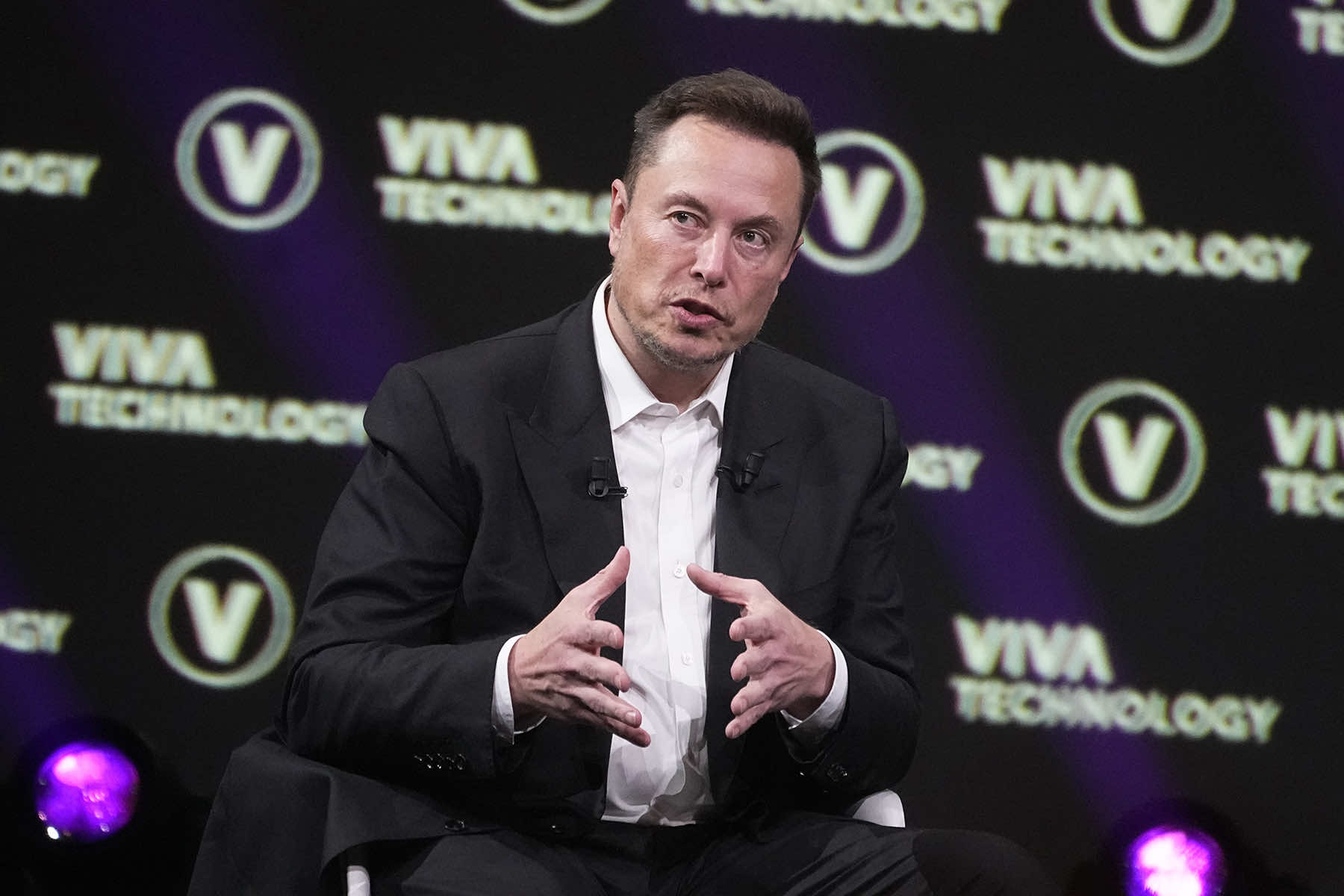
Billionaire Elon Musk said on November 27 that advertisers who have halted spending on his declining social media platform X in response to antisemitic and other hateful material were engaging in “blackmail.”
The controversial South African-born entrepreneur unleashed a profanity-laced tirade, telling detractors to “Go f@ck yourself.”
“Don’t advertise,” Musk said.
He appeared to specifically call out Walt Disney Co. CEO Bob Iger, saying, “Hey Bob, if you’re in the audience … that’s how I feel.”
In an on-stage interview at The New York Times DealBook Summit, Musk also apologized for endorsing an antisemitic conspiracy theory in response to a post on X that helped fuel an advertiser exodus.
The comments come just two days after Musk visited Israel, where he toured a kibbutz attacked by Hamas militants and held talks with top leaders.
Since buying Twitter, rebranded as X, Musk has welcomed hatemongers to the platform, including one who recently coined the trending hashtag #BanTheADL.
The ADL, the Jewish Anti-Defamation League, was founded in 1913 to fight antisemitism and secure “justice not only for Jews but for all people.”
Musk attacked the ADL on September 4, 2023, saying that “Our U.S. advertising revenue is still down 60%, primarily due to pressure on advertisers by @ADL.”
As #BanTheADL trended on X, users tweeted that it was “anti-Christian.” The belief that Jews are “anti-Christian” comes from the Gospels, where Jews are blamed for the crucifixion of Jesus.
Musk has tweeted that ADL’s aggression against antisemites posting on X makes them the “biggest generators of anti-Semitism on this platform.”
Blaming Jewish behavior for triggering antisemitism also has deep roots, and has often been used to justify violence against Jews.
Musk has faced other accusations of tolerating antisemitic messages on the platform since purchasing it in 2022. The content on X, formerly Twitter, has gained increased scrutiny since the war between Israel and Hamas began in October.
A slew of big brands, including Disney and IBM, stopped advertising on the platform in November after a report by liberal advocacy group Media Matters said their ads were appearing alongside pro-Nazi content and white nationalist posts.
X has since sued Media Matters, claiming without evidence that the Washington-based nonprofit manufactured the report to “drive advertisers from the platform and destroy X Corp.”
Walmart joined the growing flock of major advertisers to pull spending from X on December 1, citing concerns about hate speech — as well as reaching a sizeable audience on the platform.
“We aren’t advertising on X as we’ve found some other platforms better reach our customers,” Walmart said in a statement.
X risks not only losing corporate advertisers, but also a revenue stream from political candidates. U.S. political ad spending in 2024, when a presidential election will be held, is expected to reach a record $10.2 billion.
Musk, also the CEO of Tesla Motors, saw additional backlash on November 30, the day his electric vehicle company finally delivered its much-delayed Cybertruck. Tesla’s shares fell nearly 2 percent. Some of the loss was attributed to disappointment with the Cybertruck’s pricing and availability. But investors remain concerned about Musk’s latest comments, following his previous endorsement of an antisemitic conspiracy theory.













